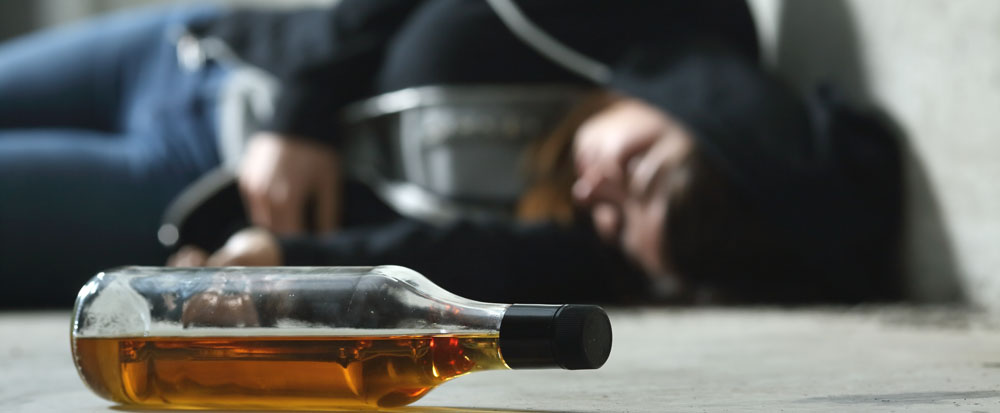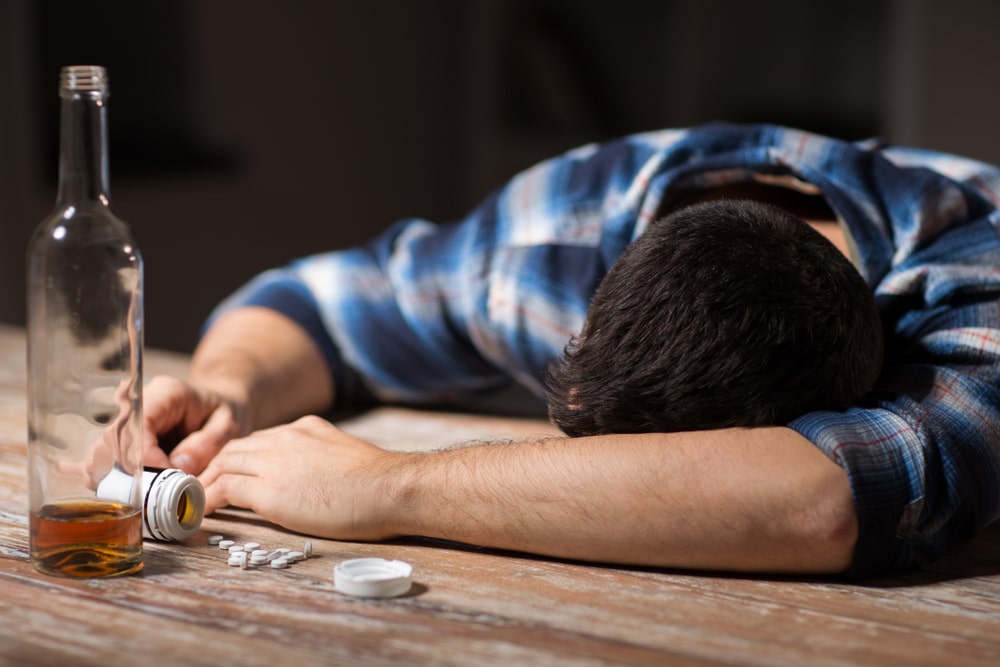What Is Alcohol Poisoning?
Alcohol poisoning occurs when excessive alcohol in the bloodstream suppresses vital brain functions, often referred to as an alcohol overdose. As a depressant, alcohol impacts the brain and nervous system, slowing down breathing, heart rate, and other essential bodily processes. The liver typically filters alcohol toxins effectively, but consuming large amounts in a short period can overwhelm its capacity, leading to toxicity. This condition poses serious risks, including brain damage and death. If you suspect someone has had too much to drink, call emergency services immediately.
What Are the Symptoms of Alcohol Poisoning?
Symptoms of alcohol poisoning begin mildly and worsen over time. Early signs may resemble typical drunkenness, such as:
- Confusion or slurred speech
- Poor coordination and stumbling
- Damp or clammy skin
As the condition progresses, more severe symptoms emerge, including:
- Extreme confusion
- Difficulty staying awake
- Persistent vomiting
- Seizures
- Slow breathing (fewer than 8 breaths per minute)
- Long pauses between breaths (10 seconds or more)
- Significantly slowed heart rate
- Low body temperature
- Bluish, gray, or pale skin
- Delayed reflexes (e.g., weakened gag reflex)
These signs indicate a life-threatening situation requiring urgent intervention.
Potential Complications of Alcohol Poisoning
Without prompt treatment, alcohol poisoning can lead to severe complications, such as:
- Choking on vomit
- Breathing difficulties due to vomit in the lungs
- Extreme dehydration
- Hypothermia
- Brain damage
- Repeated seizures
- Coma
- Heart attack
- Death
These outcomes underscore the critical nature of timely action.

Causes of Alcohol Poisoning
Alcohol beverages contain ethanol, a substance also present in mouthwashes, certain medications, and household products. Alcohol poisoning occurs when excessive ethanol is consumed rapidly. Other alcohols, like isopropyl (rubbing alcohol) or methanol (wood alcohol), are toxic differently.
Binge Drinking
Binge drinking is a primary trigger of alcohol poisoning. It’s defined as drinking enough to raise blood alcohol concentration (BAC) to 0.08% or higher. For men, this means consuming 5 or more drinks in under 2 hours; for women, it’s 4 or more. Teens and college-aged individuals are particularly prone to this behavior.
A standard drink equals:
- 12 ounces of beer (5% alcohol)
- 5 ounces of wine (12% alcohol)
- 1.5 ounces of 80-proof liquor (e.g., gin, rum, whiskey; 40% alcohol)
- 1.5 ounces of brandy or cognac (40% alcohol)
Mixed drinks may contain multiple servings. Even after losing consciousness, the stomach and intestines continue releasing alcohol into the bloodstream, elevating BAC levels.
Risk Factors for Alcohol Poisoning
While young adults often engage in binge drinking, fatalities from alcohol poisoning most commonly occur among men aged 35-64. Men tend to drink more than women, and middle-aged individuals are more likely to use prescription drugs, intensifying the effects.
Risk severity depends on:
- Body size or weight
- General health
- Alcohol tolerance
- Recent food intake
- Drug use
- Drinking quantity and speed
- Alcohol content of the drink
How to Handle an Alcohol Poisoning Emergency?
If you suspect alcohol poisoning, act quickly with these steps:
- Call Emergency Services: Dial 911 without delay.
- Stay with the Person: Never leave them unattended.
- Keep Them Awake: Encourage them to stay conscious and upright.
- Offer Water: If they’re alert, provide small sips of water.
- Provide Warmth: Use a blanket to maintain body heat.
- Position Safely: If unconscious, place them on their side to prevent choking.
- Inform Responders: Share details about symptoms and alcohol consumption with paramedics.
Diagnosing Alcohol Poisoning
Doctors diagnose alcohol poisoning based on symptoms, followed by blood and urine tests to measure BAC and confirm the condition’s severity.

Treatment for Alcohol Poisoning
In a hospital, treatment may include:
- IV fluids to rehydrate
- Oxygen therapy to aid breathing
- Stomach pumping to remove remaining alcohol
- Blood filtration to eliminate toxins
How to Prevent Alcohol Poisoning?
To reduce the risk of alcohol poisoning, consider these tips:
- Drink Moderately: Limit men to two drinks daily, women to one.
- Alternate Drinks: Switch between alcohol and water.
- Eat Before Drinking: Food slows alcohol absorption.
- Avoid Drug Interactions: Don’t mix alcohol with medications.
- Skip Drinking Games: Avoid tools like funnels or beer bongs.
- Secure Alcohol: Store alcohol out of reach of children and teens.
Common Myths About Alcohol Poisoning
These methods won’t reverse alcohol poisoning and may worsen it:
- Cold Showers: Can dangerously lower body temperature.
- Eating: May trigger vomiting or choking.
- Coffee: Caffeine doesn’t reduce BAC.
- Walking: Risks falls and injuries.
- Inducing Vomiting: Increases choking hazards.
Conclusion
Alcohol poisoning is a life-threatening condition caused by excessive drinking, potentially leading to brain damage or death. Recognizing symptoms like vomiting, seizures, slow breathing, or severe confusion and acting swiftly by calling 911 can save lives. Prevention hinges on moderate drinking and safety awareness.











